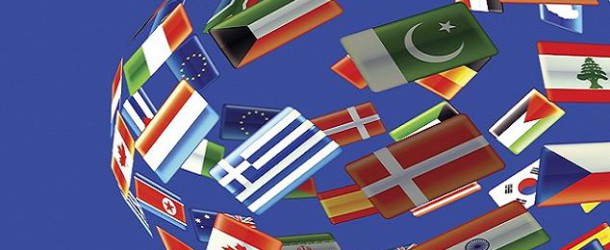Recent events have proven that the foreign policies of different nations serve not to the universal interests and transcendent values, but rather they are based on a realist approach, driven by self-interest. Therefore, in the Western media, that until recently was tuned to idealist views, one may frequently come across opinions recognizing the leading role of a political realism in the international relations.(1)
Modern realism has emerged in between the two world wars of the 20th century.(2) Cold War going on between the U.S. and USSR in the second half of the last century prompted realism, articulating factors of force and territory, introduced them into the mainstream, in the theories of Hans Morgenthau, Kenneth Waltz and others.
However, collapse of the USSR and victory of the capitalist pole provoked widespread establishment of idealism in the 1990s. West’s victory over communism was branded as the ”end of history” by Francis Fukuyama, while other liberal and neo-conservative researchers, also inspirited by the wave of democratization spurred by the dissolution of the USSR and Yugoslavia, hoped for rapid ascend of liberal democracy in all the corners of the world. According to them, new world order was characterized not by competition in the international relations but cooperation. Deriving from this, optimists considered realism in the policy of the states obsolete and incompatible with modern realities of the world.(3)
At the time, Western leaders as well dismissed the role of geopolitics in modern era. For example, in one of his addresses in 1992, President Bill Clinton disagreed with those who highlighted the factor of force in politics and said it did not conform to the demands of the new era. Five years later, in another speech, Clinton opposed the idea that “territorial policy of the big powers in the 20th century would continue to prevail in the 21st” and actually denied the urgency of geopolitics.(4)
Nonetheless, the post-Cold War euphoria was short-lived. Especially, the growing threat of terror, despite years-long battle against international terrorism, fiasco of a democratic wave titled “Arab Spring”, conflicts increasing the chances of war on the shores of the Asia Pacific and non-functionality of the UN in the settlement of these conflicts have solidified the claims that the world is ran not based on the norms of the international law but on the geopolitical self-interests of certain powers.
Regardless, idealists did not intend to surrender so fast. Often they referred to those who revealed the behind-the-scenes aspects of the politics as “conspiracists” and dubbed their approach a “conspiracy theory”. Thus, researches based on realism were purported as unsubstantiated and non-scientific. Nonetheless, the very liberals that called involvement of the Western countries in the wars in the Middle East a ”democracy building” fail to explain the passive response of the very nations to the events in Ukraine. Forcible disintegration of Ukraine, in front of the yes of the entire world and against the laws of the very nation, and inability of the leading countries and international organizations to give adequate reaction have only confirmed the compliance of the system of international law with force and self-interests.
It is not incidental that events in Ukraine have prompted opinions regarding the ”return of geopolitics” and resurgence of the realist ideas within the theory on international relations.(5) However, as many realists like to put it, the geopolitics has never lost its significance. It has remained a driving force behind the foreign policy of the nations, even after the capitalism’s victory over communism.
For example, foreign policy pursued with respect to eastward expansion of the European Union and of the NATO, and coining of the developments in the Arab world as ”democracy building”, ”defending of human rights” and ”combating international terrorism” are embodiments of the ongoing global geopolitical struggle and confrontation.
In the meantime, all-out West-Russia standoff on the events in Ukraine is characterized by many as the return of the Cold War.(6) So, if the end of the first Cold War had the most part of the world indulging itself to pleasant illusions of prosperous life, free of war and conflict, the start of the Cold War II was a wake-up call.
This means that, duplicity in international relations and bitter truth about unfair policies are more pronounced now. It would be safe to conclude that Hegel’s, Marx’s and later, Fukuyama’s ideas about the triumph of a single ideology and the system of governance that obliterated all the alternatives and culminated in the advent of the ”end of history” are unacceptable. As the humanity endures, so will the difference, contradiction, struggle and confrontation; which means that history too, will continue.
Hülya MAMMADLI
1. “Crimea Proves Political Realism is Still Dominant”, www.guardianlv.com, 23 March 2014.
2. William C. Wohlforth. “Realism and the End of the Cold War”, International Security, Vol. 19, No: 3, 1994-95, pp. 91-129.
3. John J. Mearsheimer. “Realism, the Real World, and the Academy”, in Michael Brecher and Frank P. Harvey eds. Realism and Institutionalism in International Studies. Ann Arbor: The University of Michigan Press, 2002, pp. 23-33.
4. “The Return of Geopolitics”, Foreign Affairs, May-June 2014.
5. “Yeni ‘Soyuq müharibə’: mif, yaxud reallıq?”, www.newtimes.az, 30 April 2014.
























































